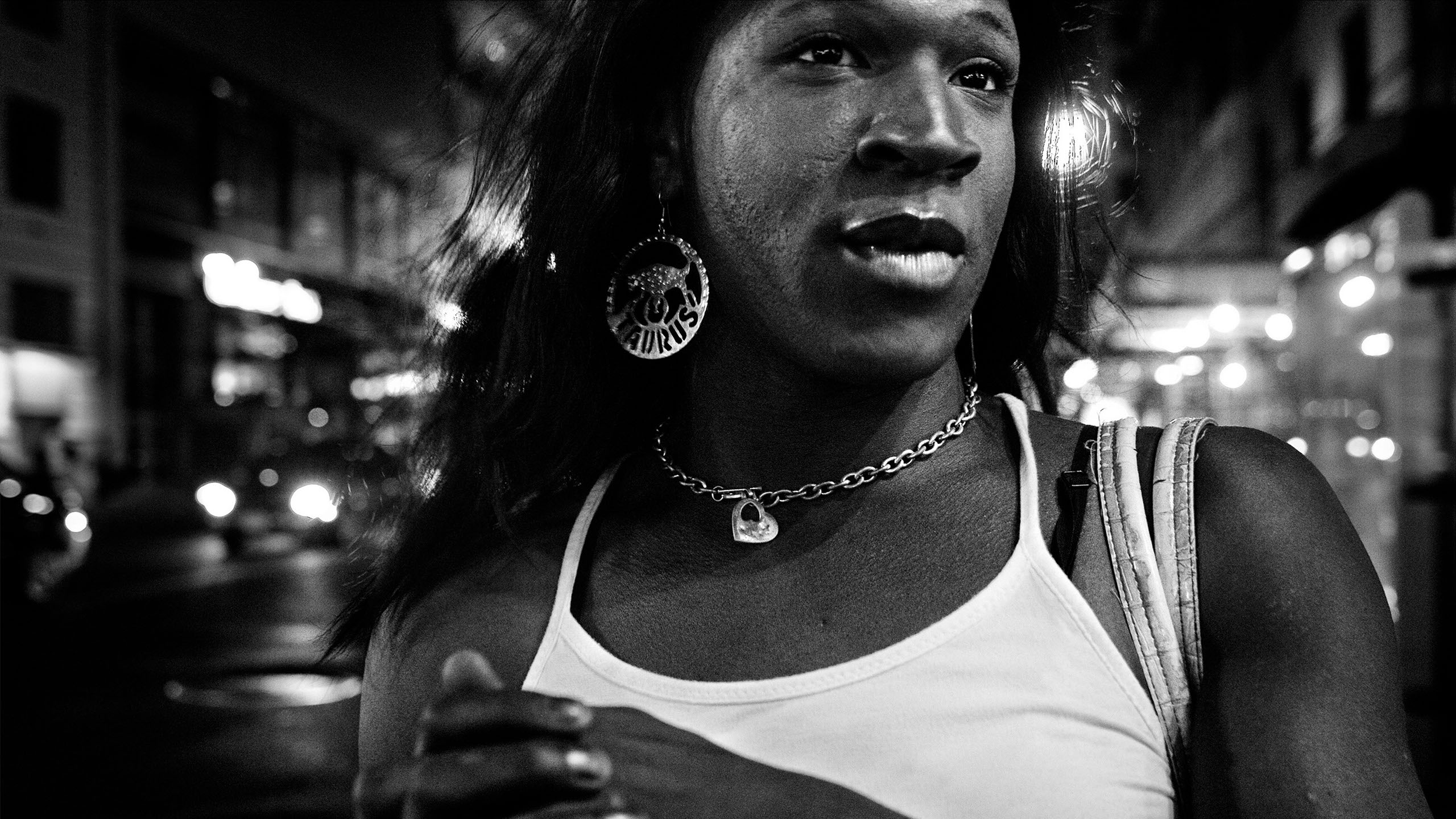In the early 2000s, Kristen Lovell, co-director (with Zackary Drucker) of the extraordinary Sundance documentary The Stroll was one of many trans sex workers, most of them Black or Latine, who stood in the streets at night in the New York City’s old Meatpacking District, waiting for a passing car—and potential client—to stop. She was the subject of a documentary back then (a younger, chubby-cheeked Lovell is shown in old clips) and she explains in this film’s opening voiceover that she became very aware that she had no control over how her story was told. The experience made her want to become a documentary filmmaker herself. In her debut as a director (previously, she acted on Random Acts of Flyness, and was co-producer of the feature The Garden Left Behind) Lovell revisits the now transformed neighbourhood, where luxury housing overlooks The High Line and is steps away from Chelsea Market, to ask the workers she first met there about their own memories of the place.
The film is a reminder of how many times these women (and one self-described “non-binary guy,” Izzy “Cashmere,” also interviewed) and others like them were the fodder for other people’s art and entertainment (including queer cis people’s). We see them in beautiful black-and-white nude gallery portraits, appearing on the long-running PBS queer news magazine In the Life and as background players to RuPaul in drag, years before Drag Race, who gives a crass video tour of the area and the trans women who work it, as she laughs and jokes about finding a new way to pay her rent.
The subjects have a lack of guardedness with Lovell that’s extremely rare in documentaries, especially those about sex workers. The audience also doesn’t get the sense (too often present in queer films hoping to attract mainstream acclaim) that any of the subjects are trying to tone down what they say for a straight white cis audience. The women talk about sometimes taking clients into empty meat trucks, but also about their friends who were killed, and their own mistreatment, assault and pain. Many of those interviewed talk about starting in sex work when they were still minors, kicked out of their family-of-origin’s homes for being trans and unable to find other work. While in one present-day scene we see Katrina and Nicole (outfits still on point) raucously discussing the old days as a white man passing by says, “I remember that,” in another scene, Izzy bursts into tears and buries their head into Lovell’s shoulder, saying, “I hate this place,” as they remember all that happened there.
Those who have seen Drucker’s excellent HBO documentary series The Lady and the Dale (The Stroll will also be on HBO on a to-be-determined date) will recognize the animated re-creations in this film, which uses the arty photos of the women to enact the histories we hear as voiceover. As always, white cis people, many of whom were queer, were among the first to start to gentrify the neighbourhood, and were part of the group of residents who harassed the women (whom one man charmingly calls “prosties”), filming them, calling the cops and making huge banners and signs telling the women they weren’t welcome.
As the film points out, trans sex workers Marsha P. Johnson and Sylvia Rivera helped found (and sometimes fund) the same early 1970s Gay Liberation movement that enabled these new queer white cis residents to live their lives openly. Johnson, possibly a murder victim, was found dead in the Hudson, the river that borders the neighbourhood, in 1992. Rivera, during her homeless period, actually lived on the water near the Meatpacking District, where we see, in an old clip, her encampment, along with those of other trans women, torn down as one of the steps in gentrification. Now the neighbourhood is so wealthy and middle-class that white cis queers can’t afford to live there either.
Some folks might wonder why this film and another at Sundance, Kokomo City (directed by D. Smith, a Black trans woman, and another film worth catching) focus on Black trans sex workers, but it’s worth remembering that Sean Baker, a straight white cis director, became well-known (at Sundance, just eight years ago) for making Tangerine a film about trans BIPOC sex workers (which won an Indie Spirit award for its supporting actress Mya Taylor, the first trans woman to win it), and every film he’s made since has been about straight white cis people. It’s about time Black trans women directed films about Black trans women, including sex workers. The audience and jury at Sundance seemed to agree: both The Stroll and Kokomo City won awards there.
Like Rivera and Johnson before them, many of the women in The Stroll have focused on activism for the community. These people whom residents and police relentlessly harassed, who spent time in jail and prison, who faced danger and disparagement now do harm reduction, or, like Ceyenne Doroshow, head nationally known organizations. One after another, the subjects describe how other trans women on the stroll saved them, protected them and encouraged them all those years ago. They continue that work in memory of those they knew who are gone—and the people they themselves used to be.
The Stroll will play at the opening gala for the London LGBTQIA+ Film Festival on March 15 2023.


 Why you can trust Xtra
Why you can trust Xtra


